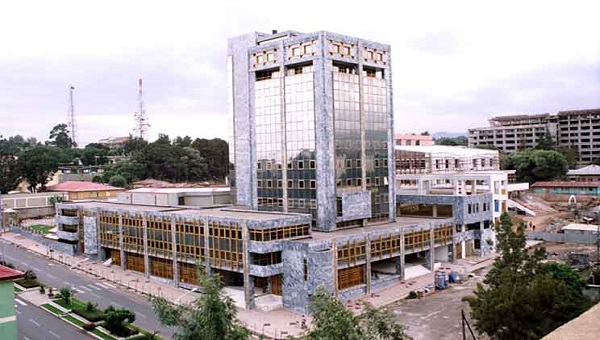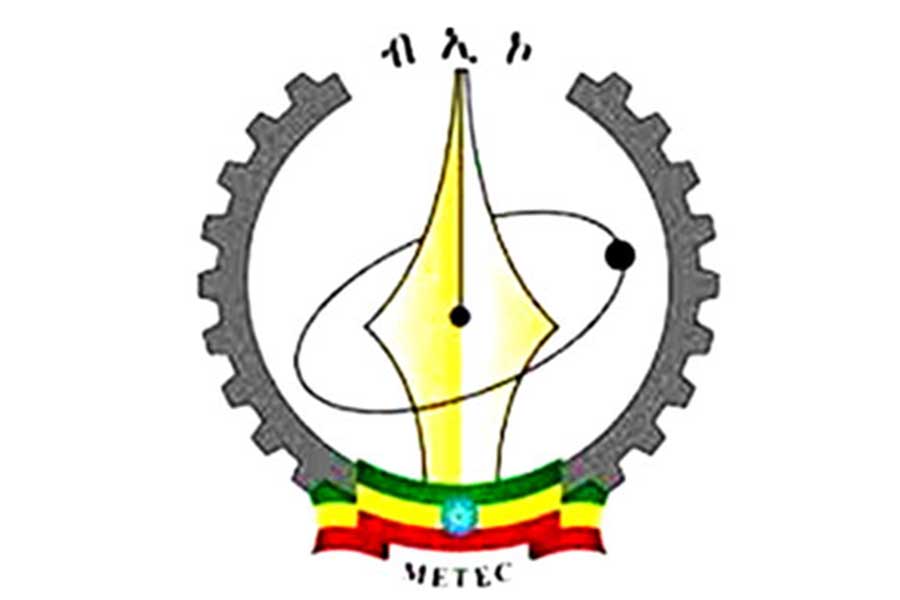
Fortune News | May 18,2024
Jul 13 , 2019
By FASIKA TADESSE ( FORTUNE STAFF WRITER )
 Two European firms won a contract to print and deliver 206 million Br in banknotes to the central bank in 50 Br and 100 Br denominations.
Two European firms won a contract to print and deliver 206 million Br in banknotes to the central bank in 50 Br and 100 Br denominations. Two European firms won a contract to print and deliver 206 million Br in banknotes to the central bank in 50 Br and 100 Br denominations.
François-Charles Oberthur Fiduciaire (FCOF), a French company, and De La Rue out of Britain are the companies that won the bid announced by the National Bank of Ethiopia (NBE).
The two companies, with an established reputation in printing the nation’s currencies, will be delivering the notes under a Free on Board (FoB) arrangement, which obliges sellers to deliver the goods at their own cost via a specific route designated by the buyer.
Usually, banknotes are transported by Ethiopian Airlines, the national carrier, and printed in countries where Ethiopian has direct flight connections.
Established in 1842 and later launched the printing of banknotes in 1940, François-Charles Oberthur Fiduciaire, which has an annual production capacity of more than five billion banknotes, will be printing 19.6 million Br in 50 Br notes.
De La Rue, established over two centuries ago and operating with 2,763 employees in 20 countries, will be printing 100 Br notes worth 187 million Br.
The notes are expected to be delivered between the end of September and the beginning of October, according to a source close to the case.
The value of the cash, which is going to be printed by these two companies, is five times lower than what the Bank prints normally.
The lower figure may be due to the new economic approach the government plans to consider during the coming fiscal year, according to Getachew Asfaw, an economist who has published several books on the macroeconomic conditions of the country.
"Recently, Prime Minister Abiy Ahmed (PhD) has disclosed that his administration will be using restrictive monetary policy [restricting the nation's money supply] to control inflationary pressure," said Getachew.
Last month inflation rate stood at 15.4pc, the second highest rate in the past 11 months. However, it is lower than the 16.2pc rate registered in May.
The banknotes will be injected into the country's economy, which has a broad money supply of 789.2 billion Br, as of the end of the second quarter of the just-ended fiscal year, showing a 22.2pc expansion from the 2017/2018 fiscal year.
The growth in the broad money supply was primarily driven by a 20.7pc increase in domestic credit and a 6.1pc growth in net foreign assets, a metric used to assess the indebtedness of a particular country.
The increase in domestic credit was attributed solely to a 15.6pc upsurge in credit to the non-central government against a 1.4pc contraction to the central government. State-owned Commercial Bank of Ethiopia's issuing of non-interest bearing bonds was the cause of the expansion of credit to the central government.
Reserve money also reached 170.5 billion Br at the end of the second quarter of the last fiscal year, a 12.8pc growth over the same quarter of last year. While currencies in circulation increased by 13.6pc, bank deposits at NBE rose by 10.8pc.
A decade ago, the broad money supply in the economy was 69.9 billion Br, which is 11-fold lower than the current level.
"The government's expansionary economic policy has pushed the broad money supply to the current level," said Getachew.
In the last fiscal year, the government targeted to control the growth in base money to 13pc. However, broad money growth reached 24.9pc, according to the International Monetary Fund (IMF).
"The supply grew owing to strong credit dynamism," reads IMF's report.
The press offices of François-Charles Oberthur Fiduciaire and De La Rue did not respond to email inquiries from Fortune.
PUBLISHED ON
Jul 13,2019 [ VOL
20 , NO
1002]

Fortune News | May 18,2024

Viewpoints | May 25,2024

Agenda | Apr 20,2024

Radar | Jul 09,2022

Fortune News | Sep 24,2022

Radar | Jun 29,2024

Fortune News | Nov 09,2019

Fortune News | Oct 17,2020

Radar | Nov 07,2020

Fortune News | Jun 14,2020

Dec 22 , 2024 . By TIZITA SHEWAFERAW
Charged with transforming colossal state-owned enterprises into modern and competitiv...

Aug 18 , 2024 . By AKSAH ITALO
Although predictable Yonas Zerihun's job in the ride-hailing service is not immune to...

Jul 28 , 2024 . By TIZITA SHEWAFERAW
Unhabitual, perhaps too many, Samuel Gebreyohannes, 38, used to occasionally enjoy a couple of beers at breakfast. However, he recently swit...

Jul 13 , 2024 . By AKSAH ITALO
Investors who rely on tractors, trucks, and field vehicles for commuting, transporting commodities, and f...

Oct 25 , 2025
The regulatory machinery is on overdrive. In only two years, no fewer than 35 new pro...

Oct 18 , 2025
The political establishment, notably the ruling party and its top brass, has become p...

Oct 11 , 2025
Ladislas Farago, a roving Associated Press (AP) correspondent, arrived in Ethiopia in...

Oct 4 , 2025
Eyob Tekalegn (PhD) had been in the Governor's chair for only weeks when, on Septembe...